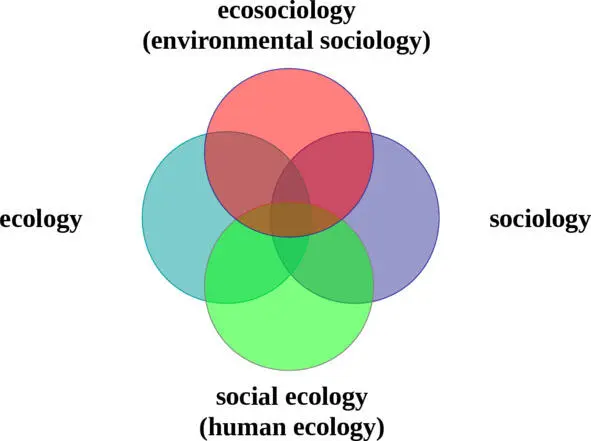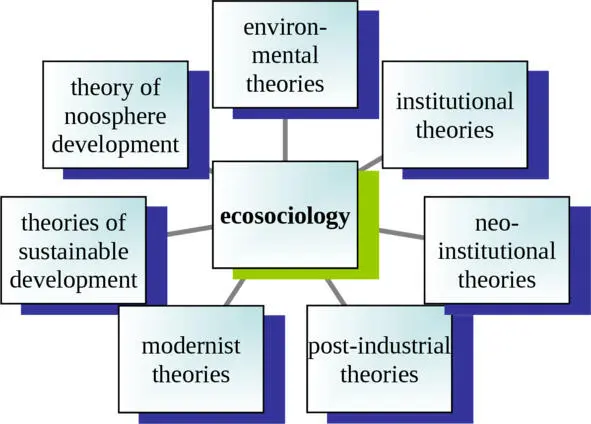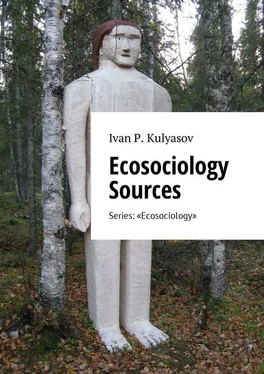I. Kulyasov - Ecosociology Sources. Series - «Ecosociology»
Здесь есть возможность читать онлайн «I. Kulyasov - Ecosociology Sources. Series - «Ecosociology»» — ознакомительный отрывок электронной книги совершенно бесплатно, а после прочтения отрывка купить полную версию. В некоторых случаях можно слушать аудио, скачать через торрент в формате fb2 и присутствует краткое содержание. ISBN: , Жанр: Прочая научная литература, на английском языке. Описание произведения, (предисловие) а так же отзывы посетителей доступны на портале библиотеки ЛибКат.
- Название:Ecosociology Sources. Series: «Ecosociology»
- Автор:
- Жанр:
- Год:неизвестен
- ISBN:9785449009913
- Рейтинг книги:5 / 5. Голосов: 1
-
Избранное:Добавить в избранное
- Отзывы:
-
Ваша оценка:
- 100
- 1
- 2
- 3
- 4
- 5
Ecosociology Sources. Series: «Ecosociology»: краткое содержание, описание и аннотация
Предлагаем к чтению аннотацию, описание, краткое содержание или предисловие (зависит от того, что написал сам автор книги «Ecosociology Sources. Series: «Ecosociology»»). Если вы не нашли необходимую информацию о книге — напишите в комментариях, мы постараемся отыскать её.
Ecosociology Sources. Series: «Ecosociology» — читать онлайн ознакомительный отрывок
Ниже представлен текст книги, разбитый по страницам. Система сохранения места последней прочитанной страницы, позволяет с удобством читать онлайн бесплатно книгу «Ecosociology Sources. Series: «Ecosociology»», без необходимости каждый раз заново искать на чём Вы остановились. Поставьте закладку, и сможете в любой момент перейти на страницу, на которой закончили чтение.
Интервал:
Закладка:
Ecosociology Sources
Series: «Ecosociology»
I. P. Kulyasov
© I. P. Kulyasov, 2018
ISBN 978-5-4490-0991-3
Created with Ridero smart publishing system
About ecosociology and ecosociologists
The concept of “ecosociology” and ecosociology as a science was formed in the inter-disciplinary area of social and natural sciences. It is closely related to environmentalism, the basic concepts of which were introduced to sociology in the 19th century. In the 20th century, these basic concepts were developed within the framework of the environmental sociological theory. In the 21st century, they became widely accepted in sociology with the emergence of the profession of an ecosociologists.
1992 marked the final institutionalization of environmental sociology in the world as the International Sociological Association established the Research Committee “Environment and Society” (RC-24), which actively worked today and from 2015, started publishing its own international peer-reviewed scientific journal “Environmental Sociology”.
In 1998, the Russian Society of Sociologists formed a Research Committee for “Ecosociology”, which actively participates in thematic sociological events, promotes addressing research and applied scientific tasks, the transfer of eco-sociological knowledge to students and across inter-disciplinary areas.
Environmentalism is simultaneously an ideology and an area of expertise oriented to understanding and studying the interaction between humans and nature, as well as hands-on application of such expertise.
Ecosociology is the science studying the patterns of functioning, development and interaction of the social and natural environments.

Schema: Intersection and combining of natural and social spheres
In Russia, the debate about the “correct” Russian-language title for environmental sociology is still ongoing. The point is that the social and mental attitudes held by environmentalists and ecologists are somewhat different. Environmentalists are sometimes also called deep ecologists, as, in their opinion, the domain of discourse and learning should include the ecology of consciousness, soul and spirit.
In fact, the Russian texts and discourses use as synonyms two notions and scientific discipline titles – social ecology and environmental sociology (eco-sociology, ecosociology). These are now only a step away from becoming independent disciplines. This difference should be clarified and the division process should be ended.
Social ecology, also referred to as human ecology or ecology of human existence, elaborates the scientific foundation for analysis of vital activities and governance of socio-ecological systems, norms and regulations relating to natural resource use, labor protection and human health, sanitation and hygiene, environmental impact assessment, regulations for environmental impact audits, guidance manuals, engineering and technological solutions.
Social ecology is a complex of all areas of expertise shaped to ensure an optimal interaction of the social and natural environments.
Social ecology is the domain of experts specializing in ecology, biology, management, sanitation and hygiene, engineering and so on, as well as sociologists, philosophers, psychologists, pedagogues and other humanitarians. Social ecologists, using the techniques of their profession, identify an efficient method and the shortest way for overcoming risks, harmonization of the social medium and the natural environment.
In the same manner, ecosociology is studied by people representing many professions from diverse fields of science. They address the same task using sociological methods. Therefore, in the scheme suggested, the place of ecosociology can be taken by any discipline prefixed with “eco”.
For ecosociologists, the natural environment is the permanent context of the interpersonal relations being studied. They study practical interaction with nature and discourse relating to nature, environmental awareness and values, environmentalism as a social movement for better quality of environmental conditions and theoretical reflection of a large number of authors from diverse fields of science, politics and production.
Ecosociology is a subdivision within sociology, social ecology and ecology. This understanding is analogous to the structure of the socio-ecological complex. It clearly highlights the difference between ecosociology and social ecology as well as that between ecosociologists and scholars from other fields of science.
If a philosopher or political scientist analyzes data from his field of science, including and verifying conclusions with sociological data obtained by himself or his peers using sociological techniques in the course of sociological research, writes about the interaction between the human and the environment, can we call this person an ecosociologist? On the other hand, take a publication in the international journal Environmental Policy elaborating on interaction between society and nature and coauthored by a geographer, a biologist, an economist, a physician and a publicist who gathered materials for this article using qualitative sociological techniques. Can these publications be placed in the library section titled Ecosociology? Or will it be more appropriate to place them in the Social Ecology section? Does that mean that the boundary between ecosociology and social ecology will remain blurred by their inter-disciplinary nature, combining of professions and co-authorship?
The answer would be: a person is an ecosociologist if he complies with the three principles of identity:
1) In his research, he uses sociological techniques and his analysis relies upon sociological theories. The context of the research relates to the social and natural environment. The object of research are social structures and institutes, organizations and communities, groups and individuals who interact with nature and with each other on the subject of nature. The subject of the research is the social aspects and mechanisms of various participants of this interaction, their causes and consequences, development stages and examples.
2) This person is referred to as an ecosociologist by peers and authors.
3) This person refers to himself / herself as an ecosociologist.
Foreword
Ecosociology sources are contained in institutional, neo-institutional, post-industrial and modernist theories, which were developing all over the world, including Russia. This found its reflection in the theories of sustainable development and noosphere genesis.
The main source making possible the emergence, establishment and development of ecosociology relates to inter-disciplinary environmental (socio-ecological) theories. They analyze various aspects of interaction between humans and nature, society and the environment.

Schema: Theoretical source of ecosociology
Environmental theories
Introduction
Environmental theories became the first and most important theoretical source of ecosociology. While these theories are quite diverse, they, as a whole, have shaped environmentalism into a scientific-practical concept and a focal area of public ecological movement. In its evolution, environmentalism was influenced by the emergence and development of naturalism and ecologism, each consisting of many socio-ecological theories and concepts, scientific schools and lines of research.
Читать дальшеИнтервал:
Закладка:
Похожие книги на «Ecosociology Sources. Series: «Ecosociology»»
Представляем Вашему вниманию похожие книги на «Ecosociology Sources. Series: «Ecosociology»» списком для выбора. Мы отобрали схожую по названию и смыслу литературу в надежде предоставить читателям больше вариантов отыскать новые, интересные, ещё непрочитанные произведения.
Обсуждение, отзывы о книге «Ecosociology Sources. Series: «Ecosociology»» и просто собственные мнения читателей. Оставьте ваши комментарии, напишите, что Вы думаете о произведении, его смысле или главных героях. Укажите что конкретно понравилось, а что нет, и почему Вы так считаете.




![Джеймс Купер - Пионеры, или У истоков Саскуиханны [The Pioneers, or The sources of the Susquehannah]](/books/395797/dzhejms-kuper-pionery-ili-u-istokov-saskuihanny-t-thumb.webp)







